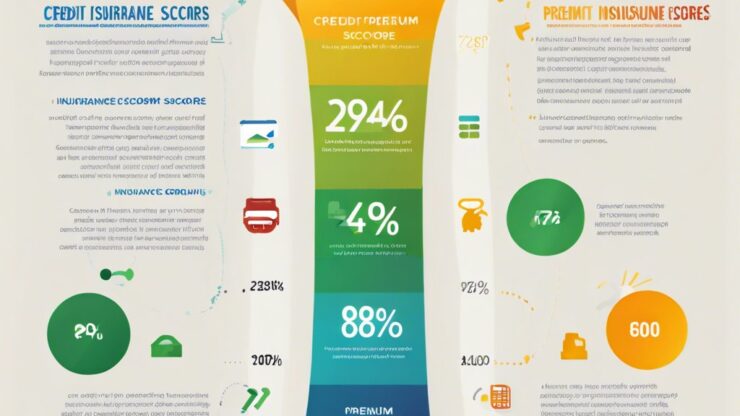Many consumers remain unaware of the profound impact that their credit score can have on their insurance premiums. Insurance companies often utilize credit scores as a key factor in determining the risk associated with insuring an individual. This correlation can lead to significant differences in premium costs, creating a scenario where individuals with lower credit scores pay substantially more for the same coverage. It’s time to demystify this connection and understand how your credit score influences your insurance costs.
Despite the well-established connection between credit scores and insurance premiums, various misconceptions persist. Many people believe that insurance companies solely use credit scores to discriminate against low-income individuals, while others think that maintaining a perfectly clean credit history guarantees the lowest premiums. Understanding these myths is essential for consumers who want to navigate the insurance landscape effectively.
- Myth 1: A perfect credit score guarantees the lowest insurance rates.
- Myth 2: Only low-income individuals are penalized by poor credit scores.
- Myth 3: Checking your own credit score will negatively impact your insurance premiums.
Improving your credit score is not just beneficial for loan applications; it can also lead to lower insurance premiums. Here are some practical steps you can take to boost your credit score, which in turn may help reduce your insurance costs:
- Regularly check your credit report for errors and dispute any inaccuracies.
- Pay your bills on time to maintain a positive payment history.
- Avoid applying for multiple credit accounts in a short period.
- Reduce your credit utilization ratio by paying down existing debt.
By following these steps, you can position yourself to potentially benefit from lower insurance premiums, illustrating the tangible impact of your credit behavior.
Disclaimer
This article has been created or edited with the support of artificial intelligence and is for informational purposes only. The information provided should not be considered investment advice. Please seek the support of a professional advisor before making any investment decisions.






